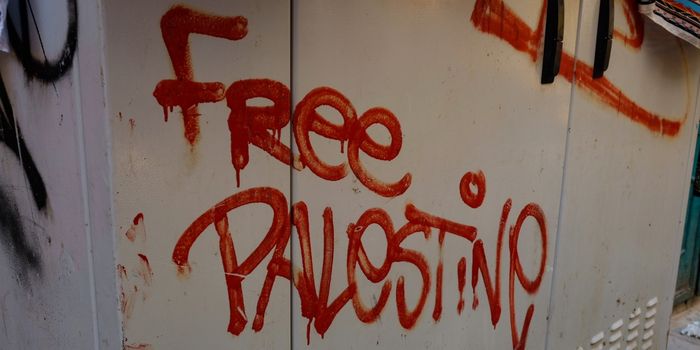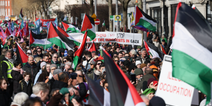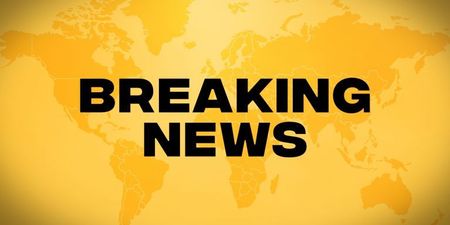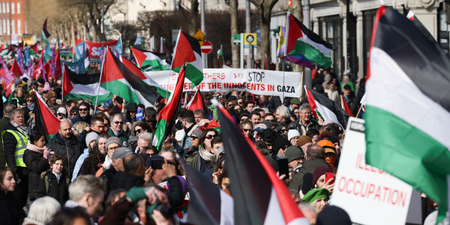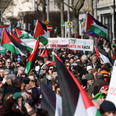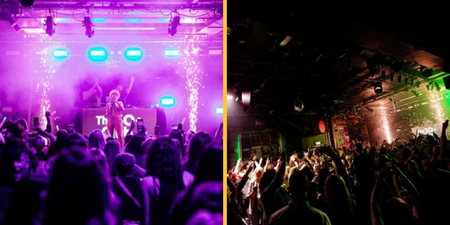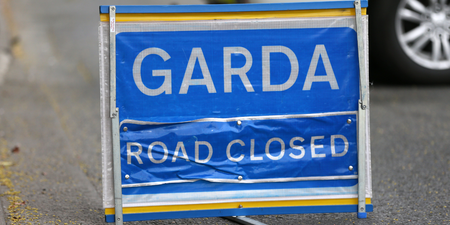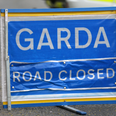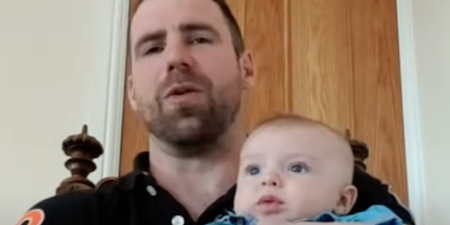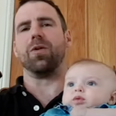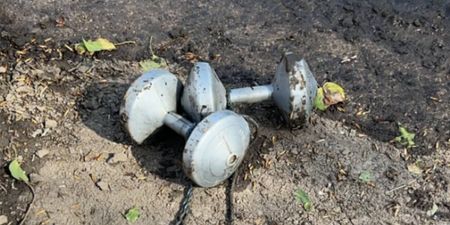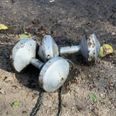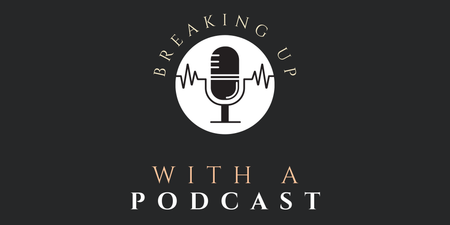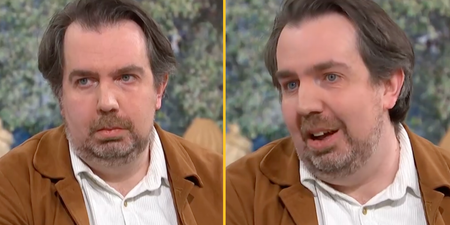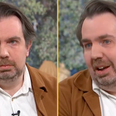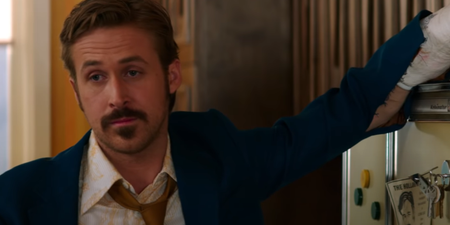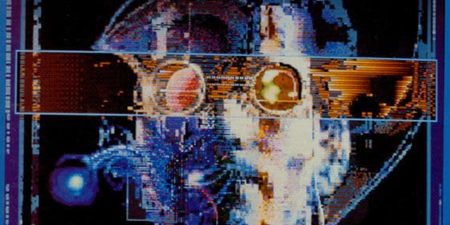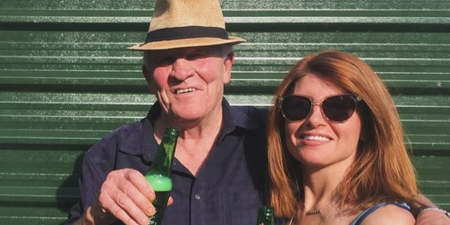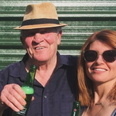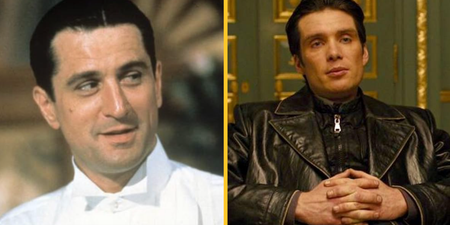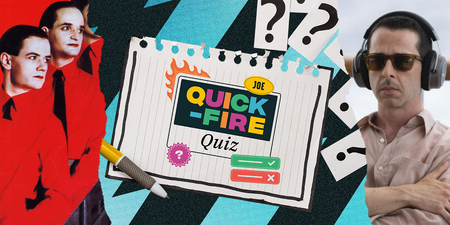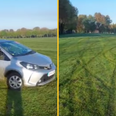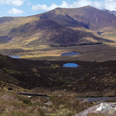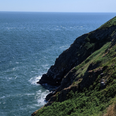“The situation on the ground is as clear-cut as one could see- modern day apartheid, plain and simple”
“An apartheid state” was how Sinn Féin TD Chris Andrews described Israel to me following his Pro-Palestinian protest in the presence of US President Joe Biden last month.
I thought I understood what he meant by “apartheid”, after all, I’d studied history in school and learned about the plight of black South Africans and the Civil Rights movement in the US during the 60’s.
As an ever-curious soul though, I was fascinated as to how Ireland is seemingly the only Western nation in which the plight of Palestinians is openly discussed, so I took the decision to make the sojourn to Palestine in an attempt to witness this alleged apartheid system in action.
Always eager as a journalist to glean an objective perspective on a situation, I tried to park whatever inherent biases which I as an Irishman might hold towards an apparent colonial aggressor.
However, this turned out to be a typically fanciful notion, with the situation on the ground as clear-cut as one could see- modern day apartheid, plain and simple.
The Jordanian capital of Amman, a city in which 80% of inhabitants claim Palestinian ancestry. (Credit: Rory Fleming)On the ground in Amman, Jordan:
After a night on the floor in Vienna Airport, I gingerly disembarked the airplane to be confronted by the sweltering heat that Amman, Jordan, has the graciousness to offer its guests.
My translucent skin ached as I made my way from the tarmac towards Jordanian customs, where I was met with a barrage of questions as to why a 24-year-old redhead had rocked up to the desert on a Sunday morning.
Eventually convincing authorities of my harmless nature (maybe the NASA branded Penney’s head cushion did the trick), I made my way into the centre of one the Middle East’s great cities, Amman.
Now I know this is a story about the trials and tribulations of the Palestinian people, but that is a tale you cannot tell without the crutch of Jordan propping it up, so there is method to the madness.
Jordan formerly held control of the West Bank (modern day Palestine) up until the nation’s 1967 war with Israel in which it succeeded the territory. The ensuing perils endured by the populous of the West Bank then led to the mass migration of Palestinians, seeing roughly half-a-million flood across the border.
In contemporary Amman, the nation’s capital, more than 80% of the population are believed to be of Palestinian descent. So, what better place to start my journey across the Holy Land than the place where its natives were so prominently driven to?
A pro-Palestinian poem appearing on the side of an abandoned carpark on one of the city’s seven peaks. (Credit: Rory Fleming)Perspective of Palestinian Diaspora:
Roaming the bustling streets of the Jordanian capital, I had seemingly transported myself to another planet, let alone another country.
Children played and weaved in and out of traffic, gun shops were as common as a Eurosaver here and there was a relentless pensioner on every corner trying to convince you to purchase kilos of his freshly baked knafeh (which I dutifully did given my sweet tooth).
However, strolling around with my camera in tow wasn’t going to help me glean a sense of what day-to-day life is actually like for the city’s Palestinian population, so I set about utilising the miniscule amount of Irish charm afforded to me and began speaking to anyone who could understand my unbearable South Dublin twang.
The people I encountered were truly some of the most affable I have ever come across, from inviting me into their homes for mansaf to showing me the best spot in town to grab an obnoxiously large portion of falafel.
They did so much more than satiate my appetite though, with Jordan’s Palestinian refugee community speaking candidly (and anonymously) about the nature of living life so tantalising close to the land they call home, and thus opening my eyes to their centuries-long persecution.
“My father left Palestine at the age of 11. He was beaten by Israeli soldiers so badly that he was in a coma for three months. He’s in his 60’s now but never been back. He still has hope though, the key to his old house is his prized possession”.
Unable to cross into Palestine through Israel, and many unwilling to cross via the Jordanian checkpoint out of protest over the ever-diminishing land mass of the West Bank, these are a people stranded in a country which doesn’t want them, thanks to a country that thinks even less of them.
In many cases not afforded the opportunity to own property, have the ability to work well paid governmental jobs or even obtain access to proper standards of education, Jordan’s Palestinian refugees may have escaped the genocide in their homeland, but have seemingly swapped it for a Sisyphus-like purgatory a few miles across the border.
Eye-opening experiences in Israel:
I had heard stories of the heavy-handed nature of Israeli authorities, but I naively assumed that as had been the case in Jordan, that my evident innoxiousness would allay any superstitions. Well, let me tell you, I got that one wrong.
In scenes that I had only before witnessed in Alfonso Cuaron’s ‘Children of Men’, we slalomed our way through concrete checkpoints via bus through the barren wasteland maintaining separation between Israel and Jordan.
Greeted by men who dangled automatic weapons from their necks like a sports day participation medal, I was hurried inside this barricaded terminus to undergo my own Mastermind grilling, with the specialist topic being me.
Having once again proven I was not a foreign security service agent, I made my way through the West Bank, towards the holiest city in the world, Jerusalem.
Ostensibly a burgeoning metropolis not dissimilar to any other major Western city, Jerusalem seemed initially to be far from the place in which a genocide could be waged.
Well, the 15 second elevator ride up to my 18th floor apartment swiftly dispelled those thoughts, as the incredulous nature of this urban centre dawned on me as I gazed off beyond the city walls, where my eyes were met with the tents and temporary structures erected by Palestinians.
When attempting to broach this subject with any locals I encountered though, I was met with an alarming apathy. Usually simply rebuffing any questions on the situation in Palestine with an irreverent shrug, although one local shopkeeper did muster this response;
“We are just protecting ourselves from terrorists. We are peaceful people and try to be friendly with other people. But, it seems Palestinians don’t want to be friendly with us. So, we must defend ourselves, it is only natural”.
Walking around this historical city should have been an opportunity at a spiritual awakening or taking in the wonders of one of the globe’s oldest civilisations. However, all-too-aware of what was going on just a couple of hundred feet outside the ironically named “peace walls”, I felt dirty and not to sound grandiose, but morally corrupt also.
The separation wall which divides modern-day Palestine from Israel. (Credit: Rory Fleming)On the ground in Palestine:
Getting into Palestine was not too dissimilar to what I imagine the Northern Irish border was like during the Troubles. Border posts, a wire mesh fence and far from friendly servicemen separated Palestine from the Holy City.
Once across after further deliberation over the authenticity of my passport and visa, the instantaneous difference was stark. Children sat along the roadside and would come harrying after you upon clocking your foreign national status, offering to sell you bottles of water or take your photo for a fee.
The pristinely kept streets of Jerusalem and Tel Aviv were a distant memory, with pot-hole ladened roads at risk of causing whiplash. There was also of course the one constant looming reminder of this land’s otherness- the colossal separation wall running through the hearts of communities.
To offer an idea of the scale of the separation enforced upon Palestinian’s by Israel, there are 175 permanent checkpoints plus countless more forms of roadblocks and surveillance, all designed to unsettle and fragment their communities. One local offered his perspective on it;
“They do it to f*** with us, just because they can. There is no reason. We are kind people, we don’t want this fighting. We just want what is ours and to be left alone to live our lives free from tyranny in our own independent nation”.
From forced evictions, to arbitrary detentions, intimidation and even torture, the stories told to me by the West Bank’s residents were a horrendous indictment of the Israeli regime, and one which left no doubt in my mind as to its patent genocidal outlook.
Whilst in Palestine, in the nearby city of Nablus, two unarmed Palestinian men were shot and killed by Israeli forces, and the day prior saw 15 people killed in Gaza following multiple Israeli missile attacks.
The viewpoint from the ground, from both my perspective and the people I spoke with, is that Israel will stop at no cost in its efforts to gain full control of the West Bank and Gaza Strip, with the ultimate aim of driving the Palestinian people from their ancestral homeland once and for all.
Israeli authorities were not the most understanding of my trip into the West Bank. (Credit: Rory Fleming)My own brush with Israeli authorities:
Attempting to re-enter Israel following my brief stint in Palestine, I was confronted by a freshly shaven cadet who unnervingly kept his hand on his hip-holstered firearm for the majority of our interaction.
As the soldier traipsed back into the command booth with my passport, I sensed that this could spell trouble at Ben Guiron International Airport later on that day.
In keeping with Israeli hospitality, my attempts to depart this apartheid state were the equivalent to trying to tame one of those in-vogue escape rooms.
Arriving at passport control, I was picked out of a line of roughly 100 people. Whisked past the checkpoint, I was ushered into a private screening lane, where I was again subjected to relaying my life story to an emotionless immigration official.
Unfortunately on this occasion, I had already used up my allotted quota of Irish charm, with the Israeli officials deciding to cap off a memorable trip with a fitting denoument.
Not satisified with just finding out the name of my Junior Cert maths teacher or what I had for breakfast on the 4th of February, the thoughtful people at Israeli immigration felt that I would appreciate my suitcase and rucksack being emptied onto the floor in front of me.
Informing me I would have to repack my bags, another official came to quiz me yet again. ‘What media organisation do you work for?’, they questioned. Never before had I mentioned my career in journalism, funny how they just ‘sensed’ it.
Having now been detained in this private security checkpoint for over two hours, I was finally informed I could go. But not before I was left with a final parting gift- luggage upended on the floor again, predictable, but effective.
“Make hummus not walls”, words to live by. (Credit: Rory Fleming)A lasting impression:
Many people scoff at the notion that Israel is committing genocide in Palestinian territories, perhaps that’s not the prevailing sense in Ireland, but I’ve spoken to enough Americans and Brits who certainly don’t share the same grá for the Palestinian cause.
From my time in the region, I fail to see how anyone who has actually stepped foot in both Jerusalem and the West Bank can categorically deny the indisputable disparities between life on either side of the wall.
On one side, people go about life as you would here in South County Dublin, extortionately priced iced coffee in hand as you gaze through designer stores up and down the high street.
On the other side, each day brings with it a fresh struggle. From living in fear of rocket attacks to the unannounced raids carried out by Israeli forces, life is a constant whirlwind of emotion. A local taxi man told me;
“Each day you worry, each day you don’t know. I have had friends and family killed, and even more leave. There is no reason for this, just greed. I hope for my children’s sake that they live a life free from this constant anxiety”.
I’m in the privileged cohort of being a white male from a Western European nation, and yet still I was treated with contempt and chariness. This fact in itself should serve as an insight into the manner in which the Palestinian community is dealt with.
So, Israel, congratulations. You have left a lasting impression, seared into my psyche like no other country before it. It just so happens though that it was through your genocidal policies and not some awe-inspiring natural wonder.
And to the people of Palestine whom I met and welcomed me with such grace and decorum, know that this Irishman stands unwaveringly behind your cause.
Beir bua.
Related Articles:
- Irish Catholic Bishops criticise government over abortion stance
- ‘Free speech absolutist’ Elon Musk bans free speech in European country
- Russia attacks Ukrainian Eurovision act’s city moments before performance
- Dublin migrant camp damaged by fire amidst anti-refugee protests
LISTEN: You Must Be Jokin’ with Aideen McQueen – Faith healers, Coolock craic and Gigging as Gaeilge
